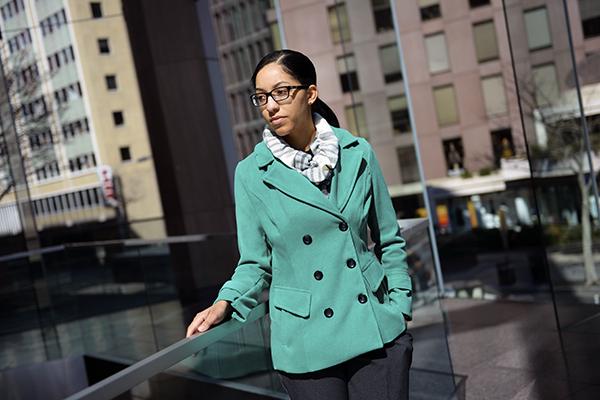A former University Police Department officer who claims she was sexually harassed while on the job has taken her case to federal court, a year after filing a complaint with a federal law enforcement agency.
Linda Queen, who left her post last March, filed a lawsuit against GW in the D.C. District Court last month for discrimination and retaliation, according to court documents. She claims that the University was unable to properly control the actions of its employees and that she was forced to resign because of a hostile work environment.
Last year, Queen filed a complaint with the Equal Employment Opportunity Commission for similar allegations, marking the fifth complaint brought against UPD in four years. Those complaints have been for age-based, racial and gender-based discrimination, as well as retaliation.
Queen claims that she was sexually harassed by her supervisors at the time, Senior Cpl. Warren Gibbs and Sgt. Christopher Brown, and that the University kept her from receiving promotions after she reported the incidents to human resources.
She alleges that Gibbs would frequently pressure her to go on dates with him, and would also make sexual comments to her. In these situations, Queen was “isolated at her post” and unable to leave, according to court documents.
In February 2013, Gibbs allegedly wrapped “his arms around [Queen’s] torso, pressing his chest and groin against her backside as she struggled, unsuccessfully, to move her arms and get away from him,” and that he then began to swing Queen around the room, according to the documents.
Queen also claims that Brown would frequently ask her on dates, which she declined. She went to the human resources office to discuss her claims of harassment multiple times between the months of March and April 2013, according to the documents.
Rosalind Herendeen, an attorney representing Queen, said the lawsuit is more detailed than the complaint with the EEOC.
She said the case will be the first “meaningful investigation” of the department’s actions since Queen initially complained to the human resources office in March 2013.
After Queen discussed her experiences with the human resources office, GW began an investigation into her claims about Brown. That December, the University found that Brown had not committed sexual harassment, according to the documents.
Queen says her asthma was aggravated by stress caused by the harassment, and that her doctor diagnosed her with “a mood disorder, anxiety disorder and post-traumatic stress disorder.”
Her doctor also said her “condition was work related and that [Queen] did not feel physically safe in the workplace.”
In addition, the documents state that Queen found ammunition in Brown’s desk, though campus police officers do not carry guns. Queen’s lawyers told GW’s senior counsel about the incident, according to the documents.
Herendeen added that Queen initially wanted to “obtain resolution” without filing a lawsuit in court, but that GW “came up short on obtaining a resolution that would be sufficient to remedy Ms. Queen for the harms that she suffered.”
“It forced Ms. Queen to elevate her concerns to district court to obtain some measure of justice,” Herendeen said. “Ms. Queen has resigned herself in order to establish safety in her own world and yet GW has repeatedly failed to take responsibility.”
Since Queen left UPD, she has started working in interior design, Herendeen added.
University spokeswoman Maralee Csellar said the University “does not comment on pending litigation.”
Queen also alleges that Todd Ladson, a former UPD officer, made sexual jokes in front of her. Ladson sued the University in September, claiming that he was wrongly fired after he was accused of creating a “sexually hostile work environment.”
Three years ago, another former UPD officer, Aaron Johnson, said he experienced racial discrimination as a UPD officer and that GW retaliated against him.








